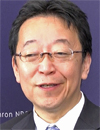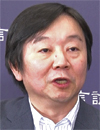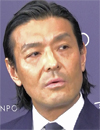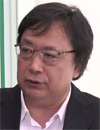 U.S. President Barack Obama's historic visit to Hiroshima is a manifestation of strengthening ties between the United States and Japan, and even if the American people decide to elect Republican Donald Trump as their next president, it is unlikely to undermine the importance of the two country's alliance, Japanese experts said.
U.S. President Barack Obama's historic visit to Hiroshima is a manifestation of strengthening ties between the United States and Japan, and even if the American people decide to elect Republican Donald Trump as their next president, it is unlikely to undermine the importance of the two country's alliance, Japanese experts said.
 In a recent discussion organized by independent Japanese think tank The Genron NPO on U.S.-Japan relations in light of the ongoing U.S. presidential campaign, Tsuneo Watanabe, a senior fellow and director of Policy Research at The Tokyo Foundation, started by commenting on Obama's trip to Hiroshima on the sidelines of the Ise-Shima G-7 Summit as a huge diplomatic success for Japan.
In a recent discussion organized by independent Japanese think tank The Genron NPO on U.S.-Japan relations in light of the ongoing U.S. presidential campaign, Tsuneo Watanabe, a senior fellow and director of Policy Research at The Tokyo Foundation, started by commenting on Obama's trip to Hiroshima on the sidelines of the Ise-Shima G-7 Summit as a huge diplomatic success for Japan.
"It was the result of the diplomatic efforts of Prime Minister Shinzo Abe and Foreign Minister Fumio Kishida to build enough trust between the two governments for Obama to risk criticism back home," Watanabe said. He also added that the fact the Japanese people or government did not seek an apology from the United States but merely wanted a country whose finger hovers over the nuclear button to see the realities of dropping an atomic bomb made it easier for Obama to make the controversial visit.
 Matake Kamiya, a professor of international relations at the National Defense Academy of Japan, agreed with Watanabe, saying, "A lot has happened in U.S.-Japan relations, but efforts over the past three years paid off and led to deepened trust between the two countries. I believe the Hiroshima visit was a major success."
Matake Kamiya, a professor of international relations at the National Defense Academy of Japan, agreed with Watanabe, saying, "A lot has happened in U.S.-Japan relations, but efforts over the past three years paid off and led to deepened trust between the two countries. I believe the Hiroshima visit was a major success."
 Toshihiro Nakayama, a professor of American politics and foreign policy at Keio University's Faculty of Policy Management, said Obama's visit was a way to symbolically wrap up the U.S. president's nuclear disarmament message he started back in 2009 in Prague. "The fact that what initially was supposed to be a 'brief comment' by Obama turned into a 17-minute speech shows how important this issue is for him personally," Nakayama said.
Toshihiro Nakayama, a professor of American politics and foreign policy at Keio University's Faculty of Policy Management, said Obama's visit was a way to symbolically wrap up the U.S. president's nuclear disarmament message he started back in 2009 in Prague. "The fact that what initially was supposed to be a 'brief comment' by Obama turned into a 17-minute speech shows how important this issue is for him personally," Nakayama said.
Kamiya added, however, that the visit is unlikely to cause any major advancement in global nuclear disarmament as the issue is not just about the United States but involves a strategic decision that must be made following careful consideration of the global security environment and the actions of other nations that possess nuclear arms. "Nuclear disarmament involves other parties, and no matter how strong President Obama's words were and no matter how many people were moved by them, decisions will ultimately depend on what other countries with nuclear weapons decide to do," he said.
"Trump phenomenon" and "America first" mentality
 The discussion, moderated by Yasushi Kudo, president of The Genron NPO, moved on to the ongoing U.S. presidential campaign, where Nakayama pointed out that Donald Trump has managed to win the support of disgruntled white middle- and lower-class blue-collar American workers who believe, despite having contributed greatly to today's America, they have failed to acquire skills to survive in this globalizing world and changes in American society, and thus feel neglected by the government and society as a whole.
The discussion, moderated by Yasushi Kudo, president of The Genron NPO, moved on to the ongoing U.S. presidential campaign, where Nakayama pointed out that Donald Trump has managed to win the support of disgruntled white middle- and lower-class blue-collar American workers who believe, despite having contributed greatly to today's America, they have failed to acquire skills to survive in this globalizing world and changes in American society, and thus feel neglected by the government and society as a whole.
"Ideologically, Trump's a complete vacuum, but he is extremely adept at picking up on people's dissatisfaction and stimulating that," Nakayama said. He also added that it was not only such people in the middle and lower classes but also the so-called "closet Trump supporters" within the establishment who feel dissatisfied with how globalization and the influx of foreigners are working against the American people.
Watanabe pointed out that people's dissatisfaction with the Republican Party is also working in Trump's favor. "If the Republican Party was strong enough, and if they really wanted Trump out of the picture, all they had to do was come up with an alternative candidate. But the party was unable to unite, nor was there anyone willing to do it," Watanabe said.
Meanwhile, Kamiya pointed out that it was becoming increasingly difficult to realize the "American dream" of equal opportunities for all in today's American society where the social and economic gap continues to widen, and people are buying Trump's simplistic claim that life is difficult because of foreigners in the country.
This lingering dissatisfaction among the American people is also reflected in support for Democratic Senator Bernard Sanders, who ran Hillary Clinton so close for the Democratic Party nomination. Sanders' uncompromisingly liberal ideology, such as free education and welfare, and less power to large businesses, resonated with disgruntled Americans, according to Nakayama.
"While the concept has been derived from a completely different logic than Trump's, Sanders also represents a trend within the Democratic Party where many feel America should no longer go out and try to maintain global order single-handedly," Nakayama said, adding that various polls also support the overall trend among the American people calling for the government to prioritize domestic issues and scale back involvement in world affairs.
America's active role in global stability
Amid such public sentiment among the American people, it is becoming increasingly difficult for the government to claim that U.S. involvement in global affairs for the stabilization and prosperity of the international community is ultimately for the benefit of the United States. But if the United States as a result decides to lessen its involvement in, for example, East Asia, which is geographically distant, that would be a major problem for Japan, and an issue that needs to be seriously addressed when contemplating the country's future,, Nakayama said.
"While there is no need to overreact now, the Trump phenomenon is showing us that we must at least start thinking about what kind of options we have," he said.
Watanabe, meanwhile, said that the United States has gone through this cycle of deepening, then weakening, involvement in global affairs throughout its history, and the current trend is merely a part of this cycle. "This trend started when Obama took office after the end of the war with Iraq and declared that the United States would not from now on be engaged in 'unnecessary involvement.' Obama instead said that in future, the United States would prioritize involvement in places where it is necessary, and that was East Asia, hence was born the administration's 2012 "Pivot to East Asia" regional strategy," Watanabe said.
He explained that the United States was always reluctant about being involved in international affairs, but in today's world of global interdependence, prosperity is only possible by being involved with other nations, so the United States knows it can't stay closeted forever, even if it wanted to.
Kamiya said now is not the time for the United States to scale back its involvement in global affairs, given the rise of China, which is known as being extremely assertive and threatening to the rules that have until now maintained global order. "Not only the United States, but Japan and Europe also want to continue to maintain this order, and for that there is a need to keep China in check by having the United States show its strength while other countries, including Japan and Europe, show firm support for Washington," Kamiya said.

Importance of U.S.-Japan alliance re-acknowledged
Experts said that the rise of Trump in today's global environment should not be taken lightly, but nor should Japan overreact, as it will become apparent that the U.S.-Japan alliance is the best and most rational solution for the two countries. "Even if there is a Trump administration in the White House, there is no way to replace the current alliance with something else in just four years. The U.S.-Japan alliance should be the only realistic option for the Trump administration, too," Nakayama said.
Watanabe added that even if Trump becomes president, he will need to have diplomatic experts from the Republican Party to advise him and these experts should be "rational enough" to realize that maintaining the status quo is the best way. "What's more worrying is the inward-looking trend of the American public. In response, Japan should think of what it can do for stability in the East Asian region on its own, and what it can do with the United States. In a way, the Abe administration's call for 'aggressive pacifism' is timely," Watanabe said.
Kamiya agreed, saying that in order to secure world peace and continue diplomacy without the use of military force, the U.S.-Japan alliance is indispensable, and that it is necessary to team up with the United States to keep China from threatening world stability. "Asia is important for the United States, in terms of the economy and security. If and when America realizes it cannot maintain order alone, Japan is the strongest ally, hence it will have no choice but to treasure (the relationship with) Japan," Kamiya said.
The problem is that Trump does not understand these complexities, and many of the people who support him are not well educated and are not interested in foreign affairs, so it will be difficult to convince them that Japan is indeed an important ally, Kamiya said. Similarly, Nakayama pointed out that if Trump's negative view on free trade calls for the United States to ditch the Trans-Pacific Partnership deal, Asian nations will start to doubt the United States' commitment to Asia and China will likely try to take over in the absence of a U.S. presence.
Kamiya said not many people understand that the U.S.-Japan alliance is not just about the United States protecting Japan but is a mechanism that contributes to the stability of the entire Asia-Pacific region. Nakayama said that was true for the Japanese people as well, and that scholars and experts should make an effort to verbalize the true benefits and significance of the alliance, and have the Japanese people consciously choose to support the pact. "Even if there is a Trump administration, it isn't going to continue forever. We just have to 'get over Trump' and avoid playing fire with anti-Trump sentiments," he said.

Post a comment